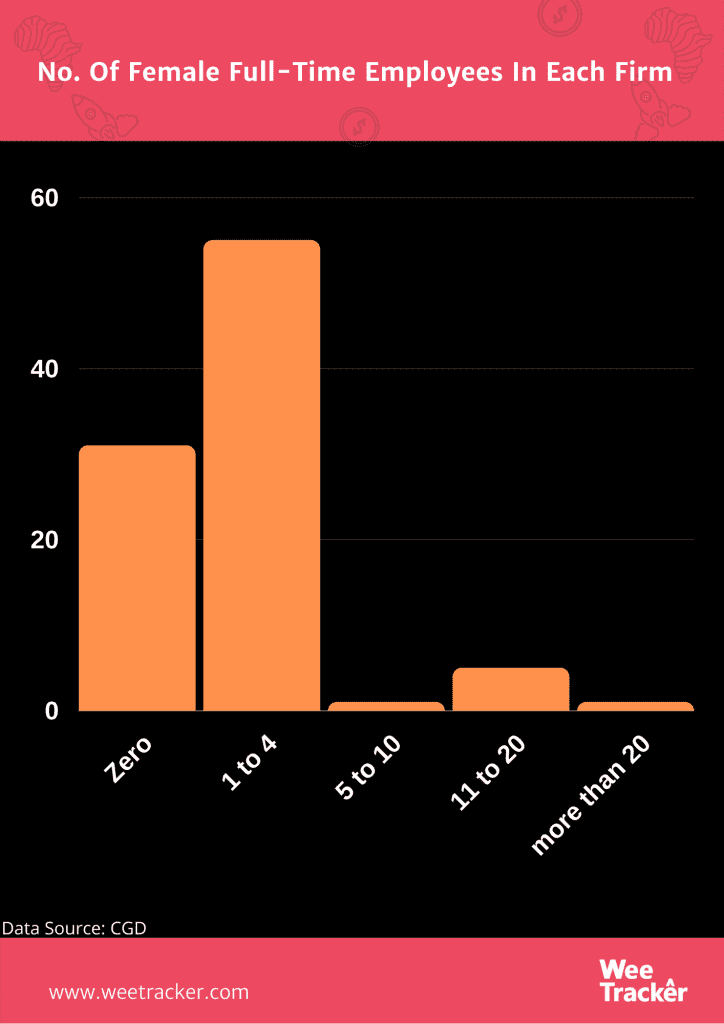Recent Events Show Extent Of Female Harassment & Exclusion In Nigerian Tech

Moment of truth for Nigeria’s tech community
Over the past week, Nigeria as a whole has been rocked by chilling stories and revelations of dastardly attacks and sexual violence targeted at women.
During this time, there were peaceful demonstrations and solidarity marches aimed at intensifying the campaign against rape and other forms of assault suffered by women.
A common theme among all the unfortunate cases that triggered renewed outrage is the exploitation and overpowering of the defenseless, from young girls to aged women.
In the past week, Nigerian women from all walks of life have summoned the courage to come out with horrific, traumatic tales of assault and sexual violence, damning the stigma. And by Tuesday, June 2, the narrative had found its way into the Nigerian tech community.
That day, Kelechi Udoagwu, a Nigerian female tech consultant, revealed a rather disgusting episode that involved a well-known tech executive in Nigeria.
I just laughed sadly cos I remember one Naija #tech mentor who was supposed to be mentoring me when I was in MEST & this dude (married) pulled out and put his dick in my hands in the bright afternoon, begging me for anything I could do *sigh.
— K. (@anti_ratrace) June 2, 2020
By her account of what transpired, on a bright afternoon, during a programme organised by MEST (the Pan-African entrepreneurial training programme, seed fund, tech incubator, and hub), a Nigerian tech executive who she thought of as a mentor sexually exposed himself to her. “[B]egging me for anything I could do,” she wrote in a disturbing Twitter thread.
The individual implicated is Kendall Ananyi who until recently had occupied the office of CEO at Tizeti.
As of yesterday, Ananyi has been removed from office as CEO of the YCombinator-backed Nigerian startup known as Tizeti (also Wifi.com.ng). In a press statement that was released on Sunday, March 7, Tizeti announced that Ananyi had been ousted and replaced by two co-CEOs, as the board continues to investigate the matter.
But in a rather dramatic twist, Tizeti has since taken down that statement announcing his removal from office.
We can confirm that the tweet by Tizeti containing this press release has now been taking down, in favour of the Kendall Ananyi’s statement posted on his personal pagehttps://t.co/uElgnJvRWJ pic.twitter.com/NIaOn048yL
— Benjamindada.com, tech blog (@dadabenblog) June 7, 2020
Ananyi, who had kept his Twitter account locked throughout last week and has remained mute on the matter all along, broke his silence today with a statement of his own which probably only made things worse.
Since the story broke last week, a number of female tech founders and women in tech, in general, have come out with similar tales of harassment, exploitation, discrimiation, marginalisation, exclusion, and sexism, that have haunted them in the past and still do as they navigate what is a male-dominated minefield.
An ecosystem rigged against women
The entire episode, once again, highlighted the gender challenges faced by women in tech, even as the entire ecosystem already appears to be rigged against them from the start.
Towards the end of 2018, The ONE Campaign and the Center for Global Development (CGD) carried out a survey of Nigerian tech firms as part of efforts to gather data on the challenges and opportunities for the tech sector.
As part of the findings in the report, it came to light that even as it is not news that many tech entrepreneurs in Nigeria have it rough, perhaps no one has it more difficult than women entrepreneurs in Nigeria.
From the survey carried out by The ONE Campaign and CGD, it was found that tech firms employ very few women. As a matter of fact, a third of the firms sampled employed no women at all.

“Women who own or manage tech firms often face discrimination, especially in financial markets where lenders are reluctant to do business with them,” a part of the report reads.
“One owner of a fintech company decided to stop attending investment meetings, as she believed that investors related better to men. A founder of a leading tech organisation told us that negative stereotypes associated with female programmers are also an impediment to women entering the tech sector.”
This part of the report, yet again, highlights the unsavoury trend of women entrepreneurs being neglected by a tech ecosystem that is unfairly biased towards male entrepreneurs.
Where men are the traditional “gatekeepers” of an industry (and most industries are so), women tend to be marginalised, exploited, or excluded when they try to get in or tread the same path.
In Nigeria, industries such as entertainment, banking, and even public service are typical grounds for sexual harassment. And the tech industry, which is a melting pot of professionals from all those industries is, by extension, just as affected.
The lopsided nature of the distribution of both genders in Nigerian tech, and its attendant problems, is reflected in TechCabal’s Women in Tech report which suggests that 55.6 percent of Nigerian female founders face gender-related challenges in the industry.
In addition, the report has it that only 33 percent of the senior management positions in tech and media are occupied by women. Further, in 2016, the ratio of male to female developers in the country was 9:1. Also, across Africa, only 9 percent of female-led startups in Africa received funding between 2012 and 2017.
Collectively, these numbers indicate how the tech industry, by virtue of its current configuration, is rigged against women who are blocked by imposing barricades at virtually every turn.
Update: Tizeti has reuploaded its statement announcing the ousting of Kendall Ananyi and Ananyi’s statement has been taken down.
Featured Image Courtesy: Women in Tech Africa